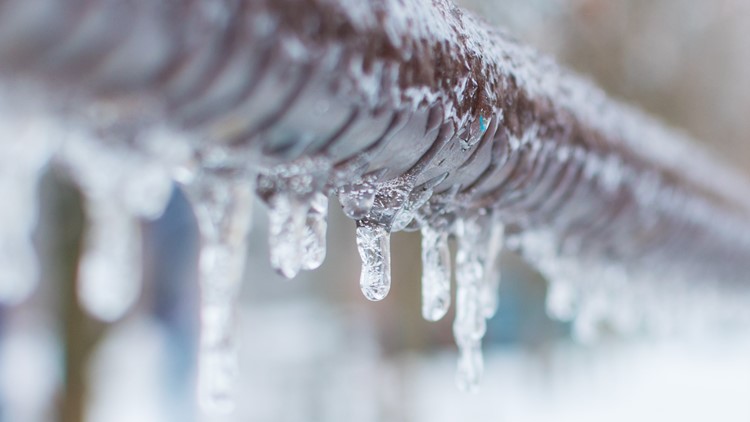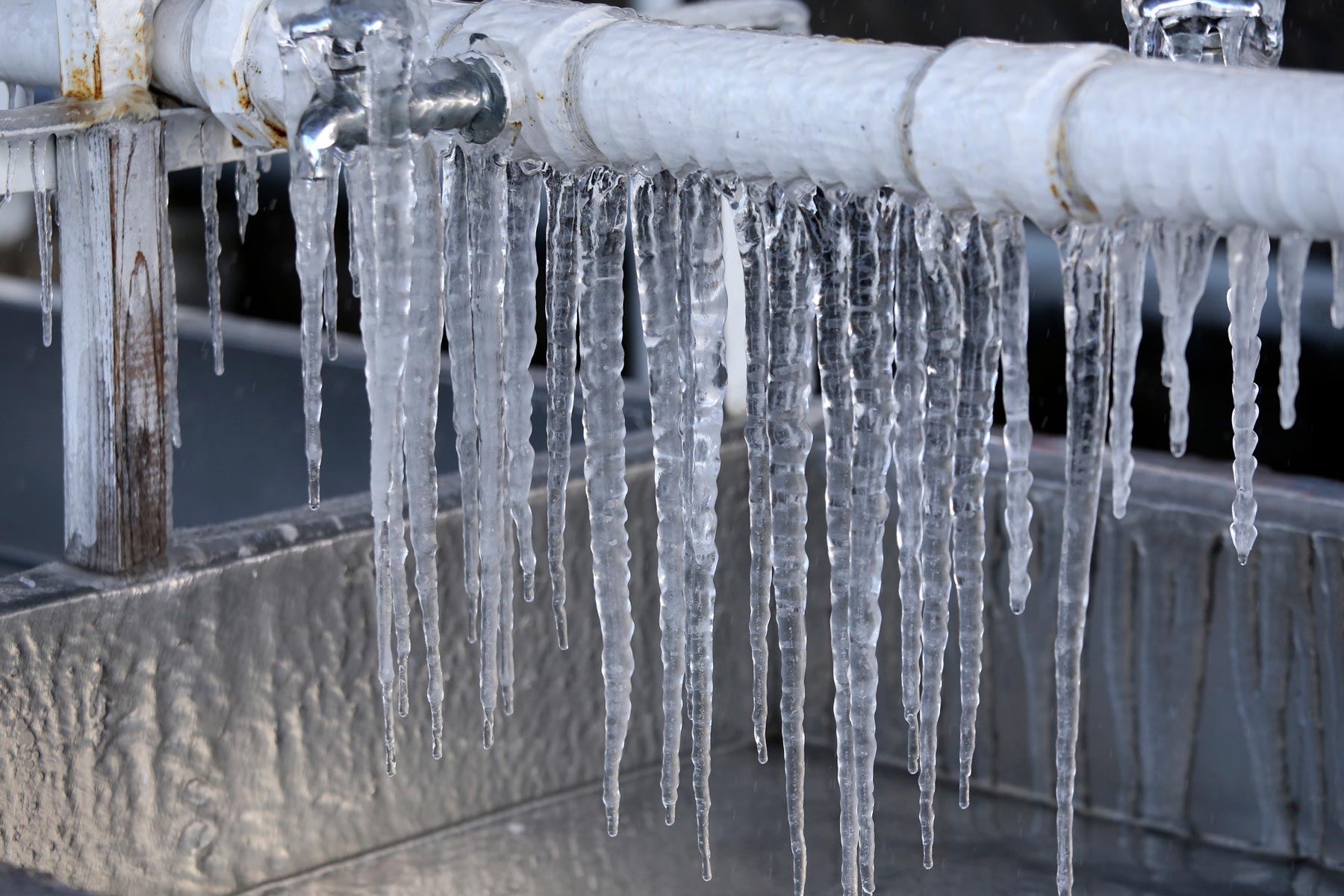Important Tips to Avoid Frozen Pipes in Cold Weather: Professional Insights
Important Tips to Avoid Frozen Pipes in Cold Weather: Professional Insights
Blog Article
What're your thoughts on How to Prevent Your Pipes From Freezing?

Winter can ruin your pipes, specifically by freezing pipelines. Right here's how to prevent it from taking place and what to do if it does.
Intro
As temperatures drop, the threat of icy pipes rises, potentially resulting in expensive fixings and water damage. Comprehending just how to prevent frozen pipes is important for home owners in cold climates.
Prevention Tips
Protecting vulnerable pipelines
Cover pipelines in insulation sleeves or make use of warmth tape to shield them from freezing temperatures. Concentrate on pipelines in unheated or outside locations of the home.
Home heating methods
Maintain indoor areas effectively warmed, specifically locations with plumbing. Open up cupboard doors to enable warm air to circulate around pipelines under sinks.
Just how to determine frozen pipes
Seek lowered water flow from faucets, unusual odors or sounds from pipelines, and visible frost on revealed pipelines.
Long-Term Solutions
Architectural adjustments
Think about rerouting pipes far from exterior wall surfaces or unheated locations. Add extra insulation to attic rooms, cellars, and crawl spaces.
Upgrading insulation
Invest in top notch insulation for pipes, attics, and walls. Appropriate insulation assists keep consistent temperatures and minimizes the danger of frozen pipes.
Securing Outside Plumbing
Garden tubes and exterior faucets
Disconnect and drain pipes yard hose pipes before winter months. Set up frost-proof spigots or cover exterior taps with protected caps.
Comprehending Frozen Pipelines
What triggers pipes to ice up?
Pipelines freeze when revealed to temperature levels below 32 ° F (0 ° C) for expanded periods. As water inside the pipes ices up, it expands, taxing the pipeline walls and possibly causing them to burst.
Dangers and damages
Frozen pipes can cause water disturbances, property damages, and costly repair services. Burst pipelines can flooding homes and create extensive architectural damage.
Signs of Frozen Piping
Determining frozen pipelines early can prevent them from breaking.
What to Do If Your Pipelines Freeze
Immediate actions to take
If you believe frozen pipelines, keep taps open to eliminate pressure as the ice melts. Utilize a hairdryer or towels taken in warm water to thaw pipelines gradually.
Conclusion
Avoiding frozen pipes calls for positive actions and fast actions. By understanding the causes, indicators, and safety nets, homeowners can protect their pipes throughout winter.
Helpful Tips to Prevent Frozen Pipes this Winter
UNDERSTANDING THE BASICS: WHY PIPES FREEZE AND WHY IT’S A PROBLEM
Water freezing inside pipes is common during the winter months, but understanding why pipes freeze, and the potential problems it can cause is crucial in preventing such incidents. This section will delve into the basics of why pipes freeze and the associated problems that may arise.
THE SCIENCE BEHIND FROZEN PIPES
When water reaches freezing temperatures, it undergoes a physical transformation and solidifies into ice. This expansion of water as it freezes is the primary reason pipes can burst. As the water inside the pipe freezes, it expands, creating immense pressure on the walls. If the pressure becomes too great, the pipe can crack or rupture, leading to leaks and water damage.
FACTORS THAT CONTRIBUTE TO PIPE FREEZING
Low Temperatures: Extremely cold weather, especially below freezing, increases the risk of pipes freezing. Uninsulated or Poorly Insulated Pipes: Pipes located in unheated areas, such as basements, crawl spaces, or attics, are more prone to freezing. Insufficient insulation or lack of insulation altogether exacerbates the problem. Exterior Wall Exposure: Pipes running along exterior walls are susceptible to freezing as they encounter colder temperatures outside. Lack of Heating or Temperature Regulation: Inadequate heating or inconsistent temperature control in your home can contribute to frozen pipes. PROBLEMS CAUSED BY FROZEN PIPES
- Pipe Bursting: As mentioned earlier, the expansion of water as it freezes can cause pipes to burst, resulting in significant water damage.
- Water Damage: When pipes burst, it can lead to flooding and water damage to your property, including walls, ceilings, flooring, and personal belongings.
- Structural Damage: Prolonged exposure to water from burst pipes can compromise the structural integrity of your home, leading to costly repairs.
- Mold and Mildew Growth: Excess moisture from water damage can create a favorable environment for mold and mildew growth, posing health risks to occupants.
- Disrupted Water Supply: Frozen pipes can also result in a complete or partial loss of water supply until the issue is resolved.
WHY CERTAIN PIPES ARE MORE PRONE TO FREEZING
- Location: Pipes located in unheated or poorly insulated areas, such as basements, crawl spaces, attics, or exterior walls, are at higher risk of freezing.
- Exterior Pipes: Outdoor pipes, such as those used for irrigation or exposed plumbing, are particularly vulnerable to freezing as they are directly exposed to the elements.
- Supply Lines: Pipes that carry water from the main water supply into your home, including the main water line, are critical to protect as freezing in these lines can affect your entire plumbing system.
- Underground Pipes: Pipes buried underground, such as those connected to sprinkler systems or outdoor faucets, can be susceptible to freezing if not properly insulated.
https://busybusy.com/blog/helpful-tips-to-prevent-frozen-pipes-this-winter/

As a devoted person who reads on How to prepare your home plumbing for winter weather, I think sharing that piece of content was really useful. Sharing is good. Helping others is fun. I am grateful for being here. Return soon.
Schedule Free Estimate Report this page